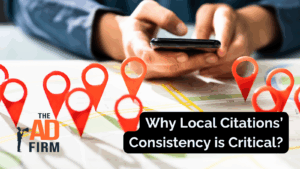Businesses trying to grow their local presence often face a frustrating obstacle: getting consistent business information across online directories.
Inaccurate listings, duplicate entries, and outdated business details can undermine local visibility and confuse potential customers. Whether it’s a wrong phone number on one site or a missing address on another, these inconsistencies hurt trust and rankings.
Many companies attempt to manually manage citations across dozens of platforms, only to realize how time-consuming and error-prone the process is.
As such, this blog takes a deep dive into a tool that’s supposed to simplify all that: data aggregators. You’ll learn what they are, how they function, and whether services like Data Axle are worth using for your business in 2025.
More importantly, we’ll break down how these tools affect visibility, rankings, and efficiency when it comes to local SEO. If you’re looking to make informed choices about where to invest your time and budget in local search, this article will help clarify your options.
Understanding Data Aggregators
Data aggregators are companies that collect and distribute business information, such as name, address, phone number, website, and more, to a wide range of online directories, search engines, mapping services, and mobile apps.
Instead of updating business information manually on every platform, companies can submit their data to a few major aggregators, which then push that data to dozens or even hundreds of sources. This process helps create uniformity across platforms, which is essential for improving local SEO.
There are only a handful of primary aggregators in the U.S., and they serve as trusted data sources for search engines like Google and Bing. These platforms rely on consistent business data to determine legitimacy, relevance, and accuracy in local search results.
When your listings are clean, consistent, and widely distributed, it sends positive signals to search engines, improving your chances of ranking higher in local search results.
Here’s how data aggregators play a key role in strengthening your local SEO foundation:
- They ensure your business data is consistently listed across multiple directories and search engines.
- They reduce the risk of duplicate listings, which can dilute your local SEO efforts.
- They help correct inaccuracies automatically without manual intervention on every platform.
- They speed up the process of getting new or updated listings live across the internet.
- They support ranking signals by reinforcing NAP consistency, a key factor in local SEO.
Despite their behind-the-scenes role, data aggregators are one of the foundational tools that influence how a business appears online. When used correctly, they can provide significant support for your broader local SEO strategy.
Amplify Your Market Strategy with The Ad Firm
- PPC: Master the art of pay-per-click advertising to drive meaningful and measurable results.
- SEO: Elevate your visibility on search engines to attract more targeted traffic to your site.
- Content Marketing: Develop and implement a content marketing strategy that enhances brand recognition and customer engagement.
But as with any tool, their effectiveness depends on how and when they’re used and whether they’re aligned with your business goals.
Data Axle Overview and Core Features for Local SEO
Data Axle is one of the leading data aggregators in the United States, known for supplying business information to hundreds of directories, navigation apps, and search engines. It plays a critical role in ensuring that business data like name, address, and phone number (NAP) stays consistent across the digital ecosystem.
For local SEO, this consistency helps establish trust and credibility with platforms like Google and Bing, which rely on accurate data for ranking decisions.
What sets Data Axle apart is its long-standing relationships with major platforms. Its data feeds into networks that influence search results, GPS systems, and voice assistants.
Businesses using Data Axle benefit from a wide distribution reach with minimal effort. This broad presence supports local discoverability without having to manage listings across dozens of platforms manually.
For companies working with a trusted SEO agency like The Ad Firm, using Data Axle as part of a larger local SEO strategy makes even more sense. Agencies can help businesses navigate the submission process, keep listings current, and integrate this data distribution with on-site optimization and reputation management.
The result is a stronger, more consistent local presence that scales over time.
Are Data Aggregators like Data Axle Worth It for Local SEO in 2025?
As competition grows in local search, businesses need to be smarter about how they manage their presence online. Data aggregators promise automation and reach, but how much impact do they deliver? Below, we’ll break down their value through five focused areas of evaluation.
Cost-Benefit Analysis for Small and Medium Businesses
Small and medium-sized businesses usually operate with limited marketing budgets. Investing in a data aggregator like Data Axle might seem like an added cost, but the long-term value often outweighs the upfront spend.
A basic listing package, depending on the provider, could range from $70 to $300 annually. For that price, your business information reaches hundreds of platforms automatically, which would take hours of manual effort otherwise.
Transform Your Online Strategy with The Ad Firm
- SEO: Achieve top search rankings and outpace your competitors with our expert SEO techniques.
- Paid Ads: Leverage cutting-edge ad strategies to maximize return on investment and increase conversions.
- Digital PR: Manage your brand’s reputation and enhance public perception with our tailored digital PR services.
Before spending, businesses should audit their current online listings. If there are multiple inconsistencies or duplicate entries across major platforms, this is a clear signal that an aggregator can bring immediate improvement. A simple exercise would be to check your business name on search engines and map apps. If the information isn’t uniform, or worse, isn’t there, it’s time to fix that.
In this case, using Data Axle becomes less about adding a tool and more about restoring control. For newer or fast-growing local businesses, the cost-to-impact ratio is favorable. Rather than hiring extra hands to fix listings one by one, an aggregator quickly gets you up to baseline so that you can focus on the next phase of growth.
Time Savings vs Manual Citation Building Efficiency
Time is a major factor in local SEO maintenance. Manual citation building requires visiting each directory, creating accounts, verifying business details, and responding to platform-specific requirements. It’s a slow and repetitive process. Multiply that across dozens of platforms, and the time commitment becomes a burden.
Using Data Axle simplifies this. One central submission distributes your business data across a network of directories. While not instant, it saves hours every quarter. This is especially useful for businesses that change hours seasonally or launch new services and need to update listings regularly.
A smart move here would be to pair aggregator submission with a short list of direct manual updates to high-priority platforms like Google Business Profile and Yelp. Keep your aggregator as the foundation while manually adjusting critical listings for speed. This hybrid approach balances efficiency with control and ensures time isn’t wasted on repetitive tasks.
Impact on Local Search Rankings and Visibility Metrics
Local search algorithms rely heavily on trust signals. One of the most important is consistency across citations. If your business appears with the same name, address, and phone number across multiple trusted platforms, Google is more likely to rank your listing in local results.
Data Axle supports ranking by pushing verified information across platforms that influence local search. It’s not a direct ranking trigger, but it strengthens the signals Google and others use to evaluate your business. This includes platforms that many businesses overlook, such as car navigation apps or secondary directories.
Boost Your Business Growth with The Ad Firm
- PPC: Optimize your ad spends with our tailored PPC campaigns that promise higher conversions.
- Web Development: Develop a robust, scalable website optimized for user experience and conversions.
- Email Marketing: Engage your audience with personalized email marketing strategies designed for maximum impact.
A helpful tactic is to monitor your Google Search Console performance and Google Business Profile insights before and after updating data through an aggregator. Look for increases in search visibility or actions taken from your business profile, like calls or direction requests. This makes the impact measurable and ties aggregator usage directly to local SEO gains.
Citation Distribution Speed and Accuracy Across Platforms
One challenge with manual listing management is the delay and inconsistency of data updates. You can submit a change to one directory today, only to find it hasn’t gone live two weeks later.
With Data Axle, changes go through one verified channel and are then distributed broadly, which improves accuracy over time. That said, it can still take a few weeks for updates to appear across all platforms.
The benefit lies in long-term consistency. Once changes propagate, they stick. You don’t have to monitor every platform constantly, which reduces the risk of outdated listings confusing potential customers. Unlike some low-quality citation builders, Data Axle has long-standing credibility with major platforms, which means better trust and fewer errors.
If you’re aiming to optimize for local SEO ranking factors, a good starting point is to update your aggregator profile whenever key business info changes. Don’t wait.
Treat your listing data with the same urgency you would give your website content or ad copy. The more accurate your listings are, the more Google rewards that consistency in local search results.
Long-term ROI and Scalability for Growing Businesses
The value of a tool like Data Axle grows over time, especially for businesses with expansion plans. If you’re opening a second or third location, you don’t want to start from scratch managing dozens of listings. With Data Axle, you can add new locations and push that data out efficiently, avoiding the headaches that come with inconsistent multi-location management.
From a return-on-investment perspective, think in terms of hours saved per year. If managing citations manually takes 5–10 hours per month and aggregator services cost $200 annually, the math quickly favors automation. More importantly, the time you save can go into areas that directly influence revenue, like customer service or local ad campaigns.
Elevate Your Market Presence with The Ad Firm
- SEO: Boost your search engine visibility and supercharge your sales figures with strategic SEO.
- PPC: Target and capture your ideal customers through highly optimized PPC campaigns.
- Social Media: Engage effectively with your audience and build brand loyalty through targeted social media strategies.
To track ROI, use tools like UTM parameters in your Google Business Profile and check referral traffic from directories tied to aggregator feeds. If you see an uptick in local visibility, engagement, or even phone calls, that’s a strong signal the aggregator is doing its job. For businesses serious about scaling, this is a small but impactful lever to pull.
Alternatives to Data Aggregators for Local SEO Success
While data aggregators like Data Axle offer reach and automation, they aren’t the only path to building a strong local search presence. For some businesses, especially those with only one or two locations, managing listings manually or through focused tools can be more flexible and cost-effective.
These alternatives give more control over specific platforms and can address niche markets that aggregators often overlook.
Here are five practical alternatives to using data aggregators:
- Direct submissions to top directories like Google Business Profile, Yelp, Bing Places, and Apple Maps.
- Manual citation building through tools like BrightLocal or Whitespark.
- Industry-specific directories tailored to niche services (e.g., Avvo for attorneys or Zocdoc for medical practices).
- Local business chambers, networking groups, and community websites for backlink and listing opportunities.
- Review management platforms that double as listing distribution tools, such as Podium or Birdeye.
Choosing one or a mix of these depends on your goals, time, and how quickly you need results. Each offers a more hands-on approach that can complement or replace aggregator use, depending on your strategy.
How The Ad Firm Utilizes Data and Alternative Strategies for Local SEO
At The Ad Firm, we don’t rely on a single method to build local search visibility. Instead, we combine reliable data distribution through aggregators with targeted manual strategies.
This layered approach ensures coverage, precision, and long-term success across different industries and business sizes.
Our approach includes:
- Submitting verified business data to aggregators like Data Axle for widespread reach.
- Manually managing and optimizing listings on critical platforms for accuracy and customization.
- Using citation audit tools to fix inconsistencies and monitor listing health.
- Incorporating localized content and structured data on websites to improve relevance and search engine comprehension.
This blend of automation and precision allows us to deliver tangible results. As a digital marketing agency, we tailor each local SEO campaign to match the client’s goals, industry, and growth phase.
Streamline Your Digital Assets with The Ad Firm
- Web Development: Build and manage high-performing digital platforms that enhance your business operations.
- SEO: Leverage advanced SEO strategies to significantly improve your search engine rankings.
- PPC: Craft and execute PPC campaigns that ensure high engagement and superior ROI.
The result we create is a stronger, more resilient local presence that evolves as your business does.
Call Us and Let’s Boost Your Local SEO Performance
Choosing the right tools for local SEO doesn’t have to be complicated. Whether you’re using data aggregators like Data Axle or taking a more hands-on approach, the goal remains the same: accurate business listings, better visibility, and more customers.
What makes the difference is how well these tools are used and how effectively they’re integrated into a larger strategy built around your business goals.
At The Ad Firm, we help businesses create customized local SEO strategies that work. We don’t take shortcuts. We combine proven methods with hands-on expertise to make sure your business gets found and stays competitive in local search results.
If you’re ready to improve your online presence and see results, schedule a free consultation with our team today.






